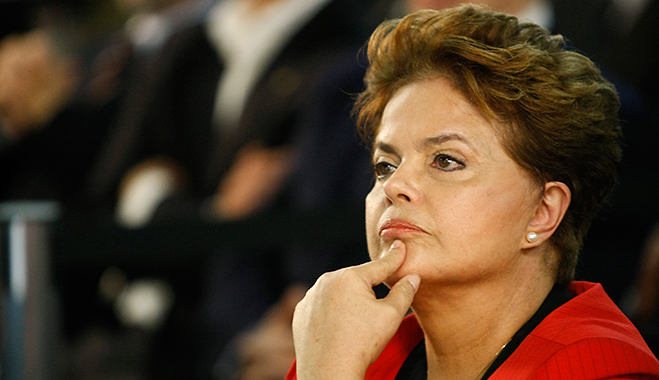
Following years of stagnant growth and two consecutive quarters of contraction, Latin America’s largest economy has finally entered recession. The economy’s second quarter losses came in at 0.6 percent after a dismal first quarter contraction of 0.2 percent, leaving President Dilma Rousseff with a mountain to climb before October’s general election.
The recession is Brazil’s first since the financial crisis and again hints towards Rousseff’s poor performance when it comes to driving the national economy. While the economy expanded by an average rate of four percent from 2003-2010 under the ruling of her predecessor Luiz Inácio Lula da Silva, growth under Rousseff’s government has since averaged out at less than two percent.
It is thought that the recession has wiped approximately $11bn from Brazil’s balance sheet
Regardless of these shortcomings, Rousseff and her centre-left Worker’s party remain the favourites for re-election, with environmentalist Marina Silva and Aécio Neves of the PSDB party following closely behind. The ruling coalition has long been unpopular among the country’s investment circles; best illustrated by the fact that Brazil’s stock market actually rose upon the news that Brazil had entered recession. However, the country’s low unemployment rate means that the government’s popularity still remains intact.
Critics insist that Brazil’s economy is overly reliant on domestic consumption and credit growth, and that Rousseff’s attempts to privatise selected concessions have come too late to make any measurable difference. It is thought that the recession has wiped approximately $11bn from Brazil’s balance sheet, despite the subsequent levels of spending that accompanied the FIFA World Cup tournament and continued bids from the government on that front to boost investment.
Although two consecutive quarters of contraction amounts to a technical recession, those in power have been quick to dismiss such a label. “I want to emphasise that even really organised countries are having problems getting better growth,” said the country’s Finance Minister Guido Mantega. Pointing to the country’s stable unemployment numbers, Mantega insisted that the downturn was due to circumstances unique to the period.


